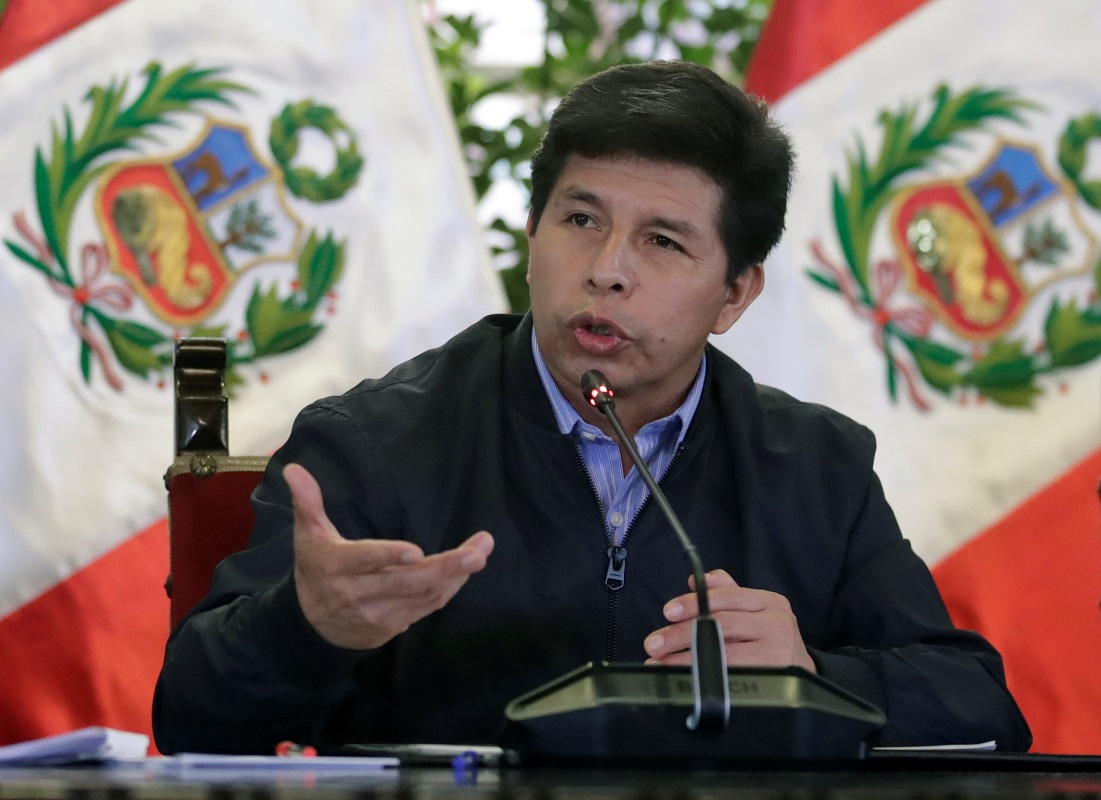Agencia Peruana de Noticias PRENSAPERU.PE https://prensaperu.pe Twitter: @prensaperupe El presidente de la República, Pedro Castillo, observó la autógrafa de ley que, entre otros aspectos, incorpora a los rectores de las universidades en el Consejo Directivo de la Superintendencia Nacional de Educación Superior (Sunedu), al considerar que es inconstitucional y atenta contra la imparcialidad, la autonomía e independencia funcional de este organismo.
El documento enviado al Legislativo, indica que al ser incorporados en la Sunedu tres rectores, representarían intereses directos de los sujetos regulados, es decir de las universidades públicas y privadas, lo cual dañaría la imparcialidad objetiva de dicha institución.
También se afectaría el rol del Estado de garantizar la calidad de la educación superior, porque la Sunedu ya no tendría la potestad de aprobar o denegar las solicitudes de licenciamiento de facultades, escuelas y programas, lo cual significaría un detrimento del derecho constitucional de la población de acceder a una educación de calidad.
Se precisa además que sería inconstitucional, de acuerdo al Tribunal Constitucional (TC), retornar al esquema organizacional de la desaparecida Asamblea Nacional de Rectores (ANR) y del Consejo Nacional para la Autorización de Funcionamiento de Universidades (Conafu).
Otra observación formulada por el Gobierno advierte que retirar la rectoría del Ministerio de Educación (Minedu) dejaría acéfala a la Sunedu y sería contraproducente con la implementación de la política de aseguramiento de la calidad de la educación superior universitaria.
Asimismo, el Poder Ejecutivo rechaza y considera inconstitucional que se pretenda extinguir a la Sunedu como un Organismo Técnico Especializado (OTE). De acuerdo a la Ley Orgánica del Poder Ejecutivo (LOPE), es su facultad la creación y disolución de organismos públicos, así como su adscripción a un ministerio.
“La autógrafa de ley invade competencias exclusivas del Poder Ejecutivo y vulnera los principios constitucionales de separación de poderes”, sostiene el documento.
Remarca, además, que la Ley Universitaria no representa ninguna violación, amenaza o vulneración a la autonomía de las universidades, reconocida por la Constitución en todas sus dimensiones (el régimen normativo, de gobierno, académico, administrativo y económico), en contraposición con lo que asegura la autógrafa de ley.
Precisa, asimismo, que al pretender restituirse el funcionamiento del Sistema Nacional de Evaluación, Acreditación y Certificación de la Calidad Educativa (Sineace), se afectará su actual proceso de reorganización, que busca asegurar la calidad en la educación superior universitaria.
Constituiría al mismo tiempo una vulneración de los principios constitucionales de separación de poderes y de competencia, dado que para crear un sistema funcional se necesita la opinión favorable de la Presidencia del Consejo de Ministros, con la cual no se cuenta.
Finalmente, se remarca que restituir a algunos órganos extintos del Sineace (IPEBA, CONEACE y CONEAU) implicará un gasto público que no está presupuestado, lo que contraviene principios constitucionales como el equilibrio presupuestario (artículo 78 de la Constitución) y la prohibición de iniciativa de gasto público del Congreso (artículo 79).
Fuente: Agencia Peruana de Noticias PRENSAPERU.PE https://prensaperu.pe Twitter: @prensaperupe
English translation
Executive Power observes Autograph of law referred to SUNEDU for being unconstitutional and affecting its autonomy, indicates document sent to Congress.
Peruvian News Agency PRENSAPERU.PE https://prensaperu.pe Twitter: @prensaperupe The President of the Republic, Pedro Castillo, observed the autograph of the law that, among other aspects, incorporates the rectors of the universities in the Council Director of the National Superintendence of Higher Education (Sunedu), considering that it is unconstitutional and violates the impartiality, autonomy and functional independence of this body.
The document sent to the Legislature indicates that by incorporating three rectors into Sunedu, they would represent the direct interests of the regulated subjects, that is, of public and private universities, which would damage the objective impartiality of said institution.
The role of the State in guaranteeing the quality of higher education would also be affected, because Sunedu would no longer have the power to approve or deny requests for licensing of faculties, schools and programs, which would mean a detriment to the constitutional right of the population. access to quality education.
It is also specified that it would be unconstitutional, according to the Constitutional Court (TC), to return to the organizational scheme of the now defunct National Assembly of Rectors (ANR) and the National Council for the Authorization of the Operation of Universities (Conafu).
Another observation made by the Government warns that withdrawing the stewardship of the Ministry of Education (Minedu) would leave Sunedu headless and would be counterproductive with the implementation of the quality assurance policy for university higher education.
Likewise, the Executive Branch rejects and considers it unconstitutional that it is intended to extinguish Sunedu as a Specialized Technical Organization (OTE). According to the Organic Law of the Executive Power (LOPE), the creation and dissolution of public bodies, as well as their affiliation to a ministry, is their power.
“The autograph of law invades exclusive powers of the Executive Power and violates the constitutional principles of separation of powers,” says the document.
It also highlights that the University Law does not represent any violation, threat or violation of the autonomy of universities, recognized by the Constitution in all its dimensions (the regulatory, government, academic, administrative and economic regime), in contrast to what that ensures the autograph of law.
It also specifies that by trying to restore the functioning of the National System of Evaluation, Accreditation and Certification of Educational Quality (Sineace), its current reorganization process, which seeks to ensure quality in university higher education, will be affected.
At the same time, it would constitute a violation of the constitutional principles of separation of powers and competence, given that in order to create a functional system, the favorable opinion of the Presidency of the Council of Ministers is needed, which is not available.
Finally, it is noted that reinstating some extinct bodies of Sineace (IPEBA, CONEACE and CONEAU) will imply public spending that is not budgeted, which contravenes constitutional principles such as budget balance (article 78 of the Constitution) and the prohibition of initiative of public expenditure of Congress (article 79).
Source: Peruvian News Agency PRENSAPERU.PE https://prensaperu.pe Twitter: @prensaperupe
